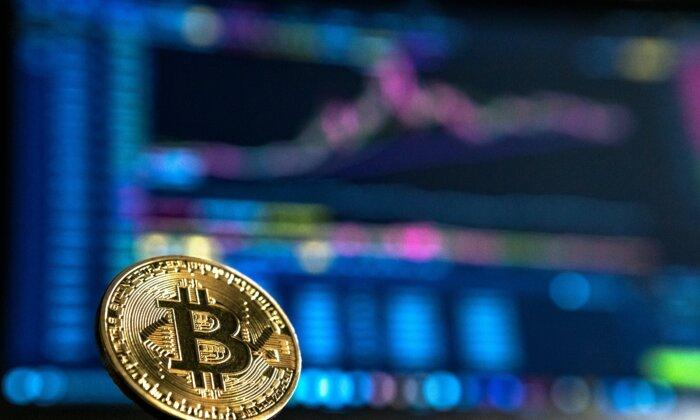Everyone is talking about Bitcoin again because the price is up, even way up: $34.5K. There are huge earnings here but with a caveat: you have to buy low. If you bought at $65K as many people did a few years ago, you are still down by half. If you bought at $15K as hardly anyone did, you are doing extremely well. There is no sure thing, despite what the boosters say.
This is the downside of only paying attention to Bitcoin when the price action is upwards. This is true for anything you purchase as an investment. When the hype grows, chances are that you are being drawn into a sucker’s rally. When its price is low and everyone else stops talking about it and even trashes it as forever dead, that’s when you need to get interested.
But this pathway violates everything we know about human psychology. This is why I have completely stopped talking about Bitcoin as an investment. These markets are impossible to time. I once correctly called the first time Bitcoin reached $1K and briefly thought I had an intuition. Then over six months, the price fell by two-thirds, which I had not anticipated. That’s when I got out of the market-calling business.
There is also the “HODL” strategy and buying and forgetting it about, not following price trends except to buy more at the lows, but otherwise never cashing out. There is much to admire about this approach. It’s a reversal of the material decadence that marked the crypto world of 2013–2015. These days, the Bitcoin rich are more likely to live more like the working poor.
Why is Bitcoin on the move again despite soft financials otherwise? There are always rumors of new investment vehicles about to be approved. There is the inflation that is not going away, against which Bitcoin can be a hedge. And now we have a real threat of a widening war.
Aside from the investing angle, Bitcoin is far more interesting to speak of in terms of its prospects as an emancipatory technology.
Some background here. The Nobel laureate economist F.A. Hayek had fought for sound money and against the depredations of central banking throughout his life. In Austria, the UK, and the U.S., he kept making the case for dramatic monetary reform. Finally by 1976, he had a revelation. All the plans designed for sound money, however seemingly perfect in theory, had a flaw. They all relied on the people who benefit from the existing system to also be in charge of reforming it.
Let me say that again. The people powerful enough to be charged with reform are the same people who constructed and benefit from the status quo. That observation is profound. It affects everything from education to health care to security to antitrust to intellectual property to finance and money. It affects absolutely everything. Once you see this problem, you cannot unsee it. It means that you have to come up with a way around the existing system and build something that is parallel to that.
This is a major problem in the realm of money. Governments have variously been involved in monopolizing the money function for the better part of 6,000 years. The only real solution, Hayek argued, was a complete separation of money and the state. The private sector, free enterprise, needs to be tasked with innovating money on its own.
His idea was solid in theory. The concept was that banks and financial institutions could issue their own currency backed by assets of the private sector itself. It would have the incentive to restrict issuance based on its own risk assessments. The currency could compete with national monies based on stability and useability. Gradually, state currencies would simply be outcompeted and we would be left with a range of competitive currencies in the private sector. The idea was visionary and anticipated a range of private-sector innovations in loyalty reward points and airline miles, not to mention Amazon’s discounts. Still, it was not money.
The great challenge of money in the digital age was how to innovate a currency within digital spaces that specialize in infinite copying. After 1995, we started seeing many attempts, all of them proprietary. These were subject to hacking and graft, and none really took off.
The White Paper on Bitcoin came out 15 years ago. It proposed that the double-spending (and printing) problem could be solved with an open-source ledger called the blockchain. The fraud problem could be solved with double-key cryptography. The problem of issuance could be solved with a strict protocol. And the incentive to confirm transactions could be solved with a fee that would accrue to machines running full nodes, in a process metaphorically called mining (in memory and homage to the gold standard).
I looked at the White Paper when it came out and decided to wait for the proof to appear in practice. That began in earnest in January 2009. By October, Bitcoin obtained its first posted price, demonstrating that it was actually valuable, not merely a digital token but a real good. When the price reached $1, even many of the first movers in the space were shocked at the success and sold everything they had.
I became convinced of the miracle of Bitcoin in early 2013 and sponsored an international conference to figure out the implications. Could this be money for the world or would it forever languish as a digital curiosity? The conference went very well but even then, there were tensions in the community.
Would Bitcoin serve as a kind of gold on which other means of exchange are added and compete with other iterations of digital currency? Would we treat Bitcoin itself as some kind of canonical standard around which the whole monetary world would revolve? Or would we inaugurate a new era of competition between technologies, all of which would strive to serve consumers and we would let the market decide winners and losers?
This all came to a head in 2015–16, when the restriction of the block size—there is a huge dispute on how this happened—led the “miners” to earn huge fees while the settlement time extended further and further out in time. No longer was Bitcoin virtually free and instant, and hence it lost enormous market share to other “trust-based” systems like Venmo and PayPal. The whole thing became oddly unfashionable for a few years.
During this period, Bitcoin itself was forked. Other digital tools that the main developers of Bitcoin refused, such as smart contracting, ended in Ethereum, the second-most capitalized crypto on the planet. Regardless, it was clear that something dramatic changed. The currency that we imagined would replace government monies became something else that was largely unusable for normal commerce.
The years between 2015 and 2020 were valuable years lost in terms of adoption. The price of Bitcoin never achieved its promise and adoption as a retail and consumer tool fell ever further. What happened precisely is a debate for another time, and I’m not sure I know the answer. The main point is that we lost ground in a time of incredible opportunity.
There was also the problem of state intervention: governments of the world started regulating off- and on-ramps, plus taxing the gains as a security. Truly, governments of the world have done everything possible to thwart and destroy Bitcoin while, at the same time, attempting to impose central bank digital currency (CBDC).
It’s an old theme: the great struggle between freedom and control. Bitcoin, as well as its many offshoots, represents freedom, while the attempt to throttle it and cartelize the technology represents technocratic despotism. And that is where we are today. I’m going to guess that this struggle will last the rest of our lives.
I have no idea how this story ends but this much I will say. Hayek was right: the single most important goal of a people who want to shore up liberty should be to build an impenetrable wall between money and the state. Cryptocurrency is one way to achieve this. Our ancestors in the struggle for freedom did not have such a thing. This gives us a huge advantage.
Yes, of course, I’m happy about the revival of the Bitcoin price. I’m much more happy about what this means for the prospect of human emancipation. Bitcoin might save the world. But not just yet.








